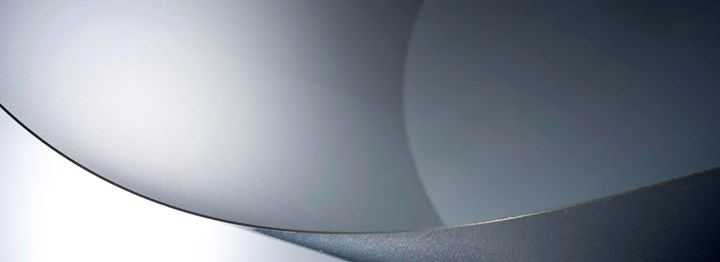Materials: Partially Biobased PC Film
Covestro’s Makrofol EC film contains more than 50% of its carbon content sourced from plant-based biomass.
Just recently, PT reported on a strategic cooperation between Covestro, Pittsburgh, Penn., and Helsinki-based Neste, whereby the latter is supplying Covestro with material from renewable sources to replace a significant portion of the fossil raw materials used to date in the manufacture of PC resins. Sustainable alternatives to traditional materials are increasingly being sought by OEMs and designers. Recognizing that sustainable thinking and action are key to a brighter future, Covestro is now expanding its materials portfolio with a novel PC film.

More than 50% of Makrofol EC film’s carbon content is sourced from plant-based biomass. When compared to standard films made from petrochemicals, a portion of the oil-based primary products used have been replaced with plant-based raw materials. Reducing the use of raw materials based on fossil resources slashes the film’s carbon footprint by approximately 20%.
The new PC film reportedly exhibits comparable or even better properties, including improved chemical and weather resistance. This partly biobased film also offers excellent mechanical properties and impact strength, high abrasion resistance and surface hardness, and good optical properties. Such films can be processed by a variety of technologies, including printing, thermoforming, high-pressure forming (HPF), coating (hardcoat, adhesive), cutting and lamination. It can be used in similar applications as traditional PC films, including automotive speedometers, decorative trim parts and instrument clusters, E&E and appliance housings, decorative control panels and electrical insulation. Other applications include labels, tags, overlays and signage and thermoformed packaging for sensitive goods.
Related Content
-
First Water Bottles With Ultrathin Glass Coating
Long used for sensitive juices and carbonated soft drinks, KHS Freshsafe PET Plasmax vapor-deposited glass coating is now providing freshness and flavor protection for PET mineral water bottles.
-
At NPE, Cypet to Show Latest Achievements in Large PET Containers
Maker of one-stage ISBM machines will show off new sizes and styles of handled and stackable PET containers, including novel interlocking products.
-
Foam-Core Multilayer Blow Molding: How It’s Done
Learn here how to take advantage of new lightweighting and recycle utilization opportunities in consumer packaging, thanks to a collaboration of leaders in microcellular foaming and multilayer head design.




